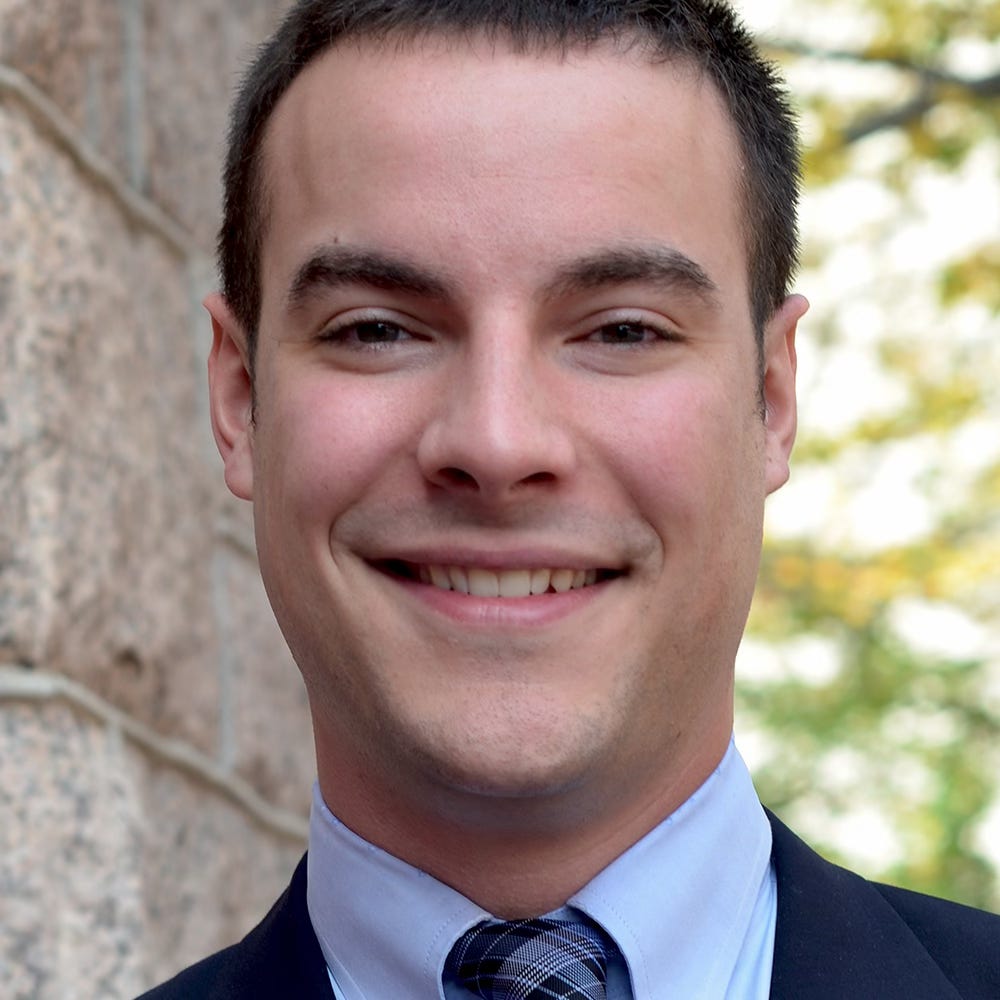Pro-Trump news outlet cheers Gov. Mills’ prison policy
Digital lynch mob calls for killing and castration of Black inmate
The backlash against The Bollard’s advocacy on behalf of imprisoned justice advocate Leo Hylton began even before this month’s print edition hit the streets Oct. 2. And it got real ugly real quick.
On Oct. 1, Steve Robinson, editor-in-chief of the conservative digital news outlet The Maine Wire (and a Bollard subscriber who got the PDF of this month’s issue two days prior), published a commentary on his website backing Gov. Janet Mills’ opposition to parole and clemency for inmates like Leo. Either Robinson or the website’s administrator then allowed its readers to publicly call for this Black man’s lynching and castration.
The hate speech exposes the broad agreement on carceral policy between our Democratic governor and Donald Trump’s supporters in Maine, a state with some of the most merciless prison policies on the planet.
Robinson rehashes, at length, the gory details of the violent burglary attempt perpetrated by Leo and his foster brother, Daniel Fortune, in 2008. He manages to work in the word machete about a dozen times, and describes Leo as a “34-year-old man who attempted to hack an innocent 10-year-old girl to death.”
Except, of course, Leo was barely 18 when, in a panic, he committed those violent acts. The grown man whose fitness for release we’re actually debating is, among many other things, a PhD student, a professional restorative-justice consultant and practitioner, a hospice worker, a prison tutor and counselor, a civil rights leader and justice-reform organizer, a radio host heard on two Maine stations (Justice Radio, broadcast on WMPG and WERU), a Bollard columnist and contributor since 2020, and a barber.
I personally look forward to being described by Robinson in a future editorial as a “53-year-old man who attempted to have sex with a 17-year-old girl” [during his junior year at Fairport High]. At least we can laugh sometimes at this guy, whose media literacy also leads him to believe The Bollard is a “newspaper.”

Considerably less entertaining are the comments of Robinson’s readers, most of whom post anonymously with, apparently, zero moderation.
“Keep this animal locked up for life!” exclaimed “Cal.”
“This is a perfect person for the death penalty,” “Joe Walker” (possibly his real name) opined.
“Reinstate the death penalty nationwide for scum like this,” “T C” agreed.
“Patricia Zebley” also agreed, and unhelpfully advocated death by hanging: “evil scum needs to swing,” they typed, adding, “of course, make sure he hears the gospel and has the opportunity to repent, before he assumes room temp.”
Among Leo’s proudest accomplishments is the fact this former high-school dropout co-taught a course at Colby College with anthropology professor Catherine Besteman. Leo and Catherine also co-authored a deeply researched three-part series on justice-reform proposals, “Toward a Cage-Free Maine: A Restorative Pathway to Decarceration and Abolition,” published in The Bollard early last year.
Robinson chose to characterize Leo’s research and educational collaboration with Besteman, who is white, as “an extremely close personal relationship,” and one of the trolls took the bait.
“This monster deserves to rot in hell for the trauma that family endured,” the commenter, writing as “No just for Victims of Crime in Maine,” stated. “While they are at it at [Maine State Prison in] Warren or Colby, make sure you chop his nuts off so he doesn’t screw this Colby idiot and have kids in the future.”
Look, I’ve got a few bad habits, but regularly reading The Maine Wire is not among them, much less the anonymous hate speech posted there or anywhere else online. I repeat these vile comments to illustrate the harmful ripple effects of Mills’ pro-prison policies, specifically her staunch opposition to reinstating parole in Maine and her unwillingness to grant exceptional candidates for clemency (Leo being just one among several in recent years) the opportunity to make their case to her clemency board in person.
There’s an inherent cruelty and nihilism to Mills’ position that pollutes the public sphere the same way Trump’s speeches do, stoking our worst attributes — our fears, our prejudices, and most worrisome this election season, our vengefulness.
“Is Hylton a changed man?” Robinson wrote. “Who knows. Sure. Who cares.”
Like Mills, whose clemency board recently rejected Leo’s 600-page petition for a hearing after 16 years behind bars, Robinson displays a medieval indifference to whether people change for the better or get worse inside our prisons. What’s most important to Mills and Robinson is that prisoners suffer for their crimes, ostensibly to deter others from attempting similar sins. Centuries of this carceral philosophy have produced the current state of our union, whereby we cage more people at gunpoint than any other nation, yet still don’t feel safe.
All sides here say public safety is our goal; we just have different ideas about how to achieve it. Restorative justice scholars and practitioners like Leo propose modern, evidence-based approaches that emphasize personal accountability, rehabilitation, reconciliation and healing. Old school tough-on-crime types like Robinson, Trump and Mills (a career prosecutor before becoming governor), cling to the pro-prison policies of past eras despite their obvious and miserable failure. They focus on the awfulness of past crimes no one can change, rather than the positive steps we could take today to make our neighborhoods much safer.
I encourage you to read Robinson’s commentary and ask yourself: Which side of this debate am I on?





Danielle Sered says, “If incarceration worked to secure safety, we would be the safest nation in all of human history.” We know that locking people up in cages doesn't work to stop crime- it simply removes them from community. Leo has with his actions over a decade of self-work in tangible ways, stepped into a form of accountability that has led to his transformation. We know that "no one enters violence for the first time by committing it" Sered. And Leo has gone beyond the conditions of his life in which he choose violence, to learn and then do better. He now walks with others helping them learn, so they can do better and I am lucky to be one of these people. He has shown up for me, helping me look at the harms I've caused in my own life and be transparent about them. That this is all of our responsibility- because while transformation may never be easy or fun, it is possible and until we practice it, we can't embody it as a society- which means we are chaining ourselves to repeat history. Clemency for Leo will make our communities and young people safer.